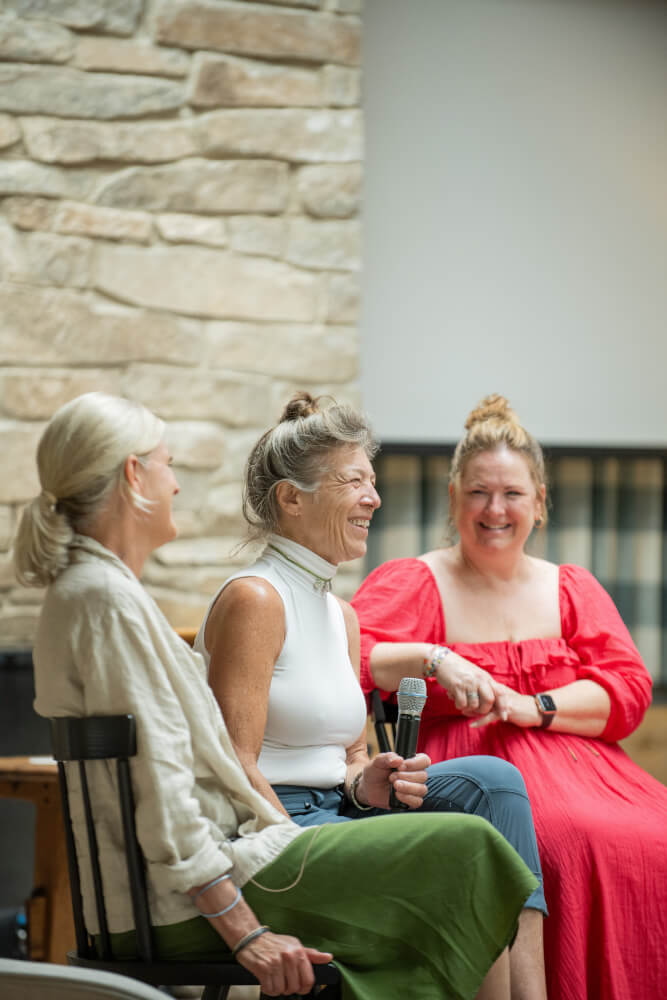
WORDS BY AMY CROUCH & PHOTOS BY WENDI POOLE
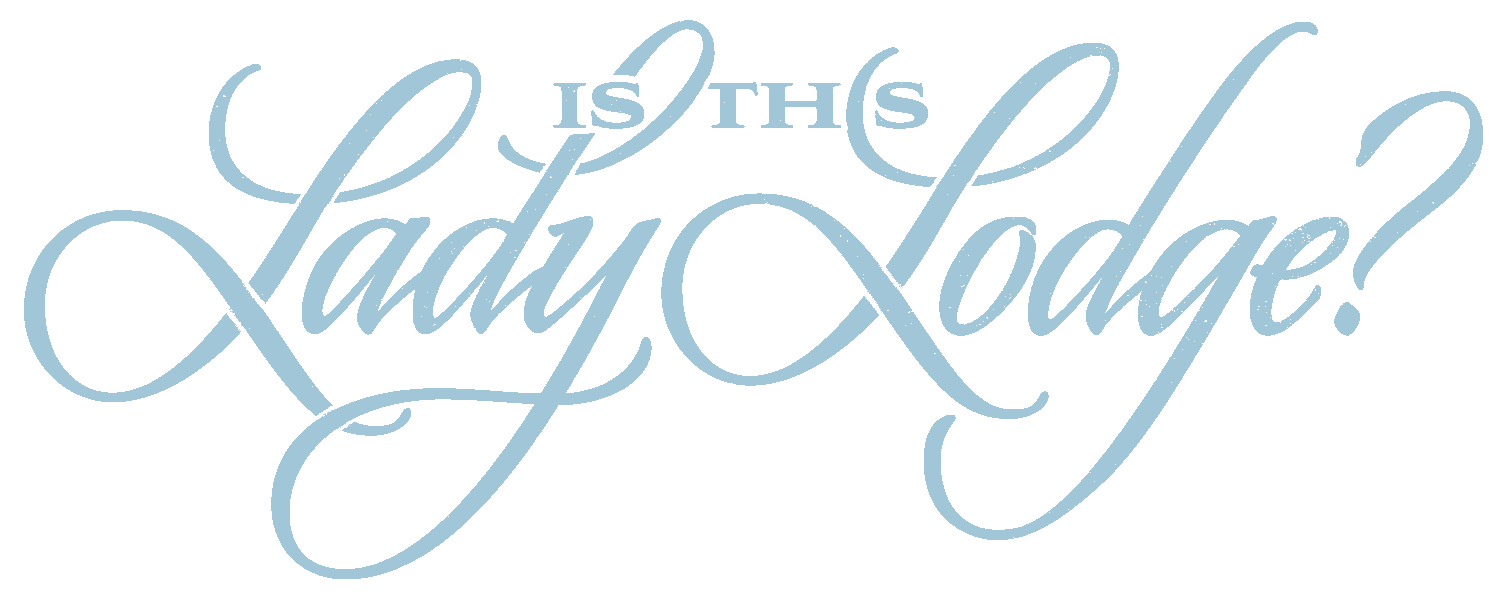
“I just wanted to ask: Can men come here?”
The call came at 11:30 p.m., and I was on call for the Laity Lodge emergency line, so I leapt out of bed and dashed for the phone. With late night calls, you expect a mountain lion on the loose or at least a scorpion sting. Instead, an unfamiliar male voice asked his burning midnight question: Are men permitted at Laity Lodge retreats?
I’ve heard the question before; combine Texan accents with the rarity of the word “Laity,” and you find a lot of people convinced that Howard Butt founded a special lodge just for ladies. In fact, “Laity” refers to both men and women: the people of God in their various vocations (or high callings).
But while Laity Lodge isn’t only for ladies, the history of Laity is intertwined with the work of brilliant and determined women. As Howard Butt, Jr., told a roomful of guests in 1938, “This place is here because of my mother.” He went on to say: “I stand before you as the product in every way of powerful women.”
| “The history of Laity is intertwined with the work of brilliant and determined women.” |
|---|
It’s because of Mary Holdsworth Butt, Howard’s mother, that guests can gather in the Great Hall, read poetry in Laity Lodge’s library, and see the Frio River flow beneath their balconies in Black Bluff. Of course, the Lodge was founded on her act of generosity—to give the place to her son as “a tool in his hands.” But it wasn’t merely a one-time gift; her work at Laity Lodge was part of her lifelong vocation.
Mary brought her eagle eye to every aspect of the Lodge’s ministry. She had a keen and demanding vision for the Laity mission, and her fingerprints are everywhere, once you know what to look for: the comfortable window seats around Laity Lodge are straight from her own home, and every poem in the Canyon lived in her memory. She looked at the overhanging cliff banks of the Frio and imagined a building cantilevered over the water. And when she saw the empty river banks across the river, she marshaled her forces to plant cypress trees along the water.
As Mary and Howard’s vision grew, more and more influential women began to gather at Laity Lodge. Women were guests since the very first days, and female speakers appeared as early as 1963. By the seventies, an annual women’s retreat was in place, anchored by Edith Schaeffer, author and co-founder of the international retreat movement L’Abri. She became a prominent speaker at the Lodge in the next ten years, energetically teaching on topics from predestination to prayer. During the same period, Lodge events featured author and missionary Elisabeth Elliot and Natalia Solzhenitsyn, the wife of Soviet dissident Aleksandr Solzhenitsyn.
These women in the sixties and seventies were preaching a variety of messages—in a context of fierce cultural debate and shifting societal norms. Some of their words would still resonate today; others would likely feel dated or out of touch. But when I listened to a lay woman featured in 1978’s Congress of the Laity, I was struck by how much her message sounded like a Lodge retreat in 2023.
At this event in Los Angeles, Howard Butt convened lay leaders from across the nation, hosted by Gerald and Betty Ford. Writer Abigail McCarthy gave the opening keynote. “As a lay woman,” said McCarthy, “I could be said to have been on the very lowest rung of the ladder of responsibility.” But, McCarthy went on to teach, the Scriptural vision of a priesthood of all believers transcends and transforms such a hierarchy. Even more Lodgically, her passion was for the work of creative people like artists, writers, and musicians. Citing Leo Tolstoy and Toni Morrison, she exhorted the audience to watch God’s hand at work in the creative art of his people.
Just a few years later, a monumental artist and creative landed in the Canyon—an incarnation of McCarthy’s vision. Madeleine L’Engle, poet and author of novel A Wrinkle in Time, drove through the river and enchanted the Laity team. “What a delight to have you at Laity Lodge,” wrote Howard Butt Jr. to Madeleine in 1984, “in all your beautiful glory. You were, and are, terrific!” She was indeed a larger-than-life presence, recalls one guest—tall, incredibly stylish, and utterly forthright. And when she was paired with her beloved friend and fellow poet Luci Shaw, the two set the Frio on fire with their poetic and literary brilliance. (Howard and Barbara Dan didn’t express their love of Madeleine in mere words; after that summer’s retreat, they sent her a blue dress from Guatemala as a present.)
Just two years earlier, the 1982 women’s retreat had brought Elisabeth Elliot to the Canyon. It’s tantalizing to wonder what Elliot and L’Engle might have had to say to each other. These two women, eight years apart in age, had drastically different public images and vocations—and would probably have argued heatedly about topics ranging from salvation to marital ethics. Somehow, Laity Lodge opened its doors to both of them.
| “What I love—love—about Laity is that not everybody feels cut out of the same cloth.” |
|---|
“What I love—love—about Laity is that not everybody feels cut out of the same cloth,” says musician Ashley Cleveland. If everyone but you seems to go to the same hairdresser, it can be hard to fit into a group. But Ashley says, “Laity Lodge knows how to escape the dichotomies.” When the Lodge is at its best, women can be welcomed in their individuality.
Naturally, there’s a special magic to a women’s retreat; as psychotherapist and spiritual director Linda Roberts notes, “Women talk to women differently.” Artist Phaedra Taylor reminisced about 2019’s “Art, Motherhood, and Vocation” retreat: “It was so refreshing to be surrounded by women who understood the unique tensions” of being both a mother and an artist.
Ashley shared, “Groups of ‘church women’ can sometimes feel like dangerous waters.” And talk of vocation can easily feel like just another heavy demand. It’s exhausting to be told you need to be the perfect mother and wife—and worse if you’re also supposed to be a brilliant artist and a successful surgeon.
But today’s women of Laity Lodge resist this kind of yoke; and they don’t speak only to women. “The saving work has already been done,” declared theologian Kristen Johnson to men and women at a public retreat this summer. “We step back to allow our vision to be God’s vision and remember that our work is ultimately put in the framework of God’s work.” Women’s—and men’s—individual callings and gifts matter in God’s economy, but they’re not a burden to be shouldered.
Behind this kind of witness stand sixty years of work from the “powerful women” Howard Butt praised. The women of the Lodge, from Edith Schaeffer to Madeleine L’Engle, don’t fit into a neat narrative either of empowerment or oppression. But without ladies like Laity Lodge’s remarkable founder, there would be no Laity. Sixty years later, Mary Holdsworth Butt’s legacy stands as tall as the cypress trees she planted.
| “Naturally, there’s a special magic to a women’s retreat.” |
|---|
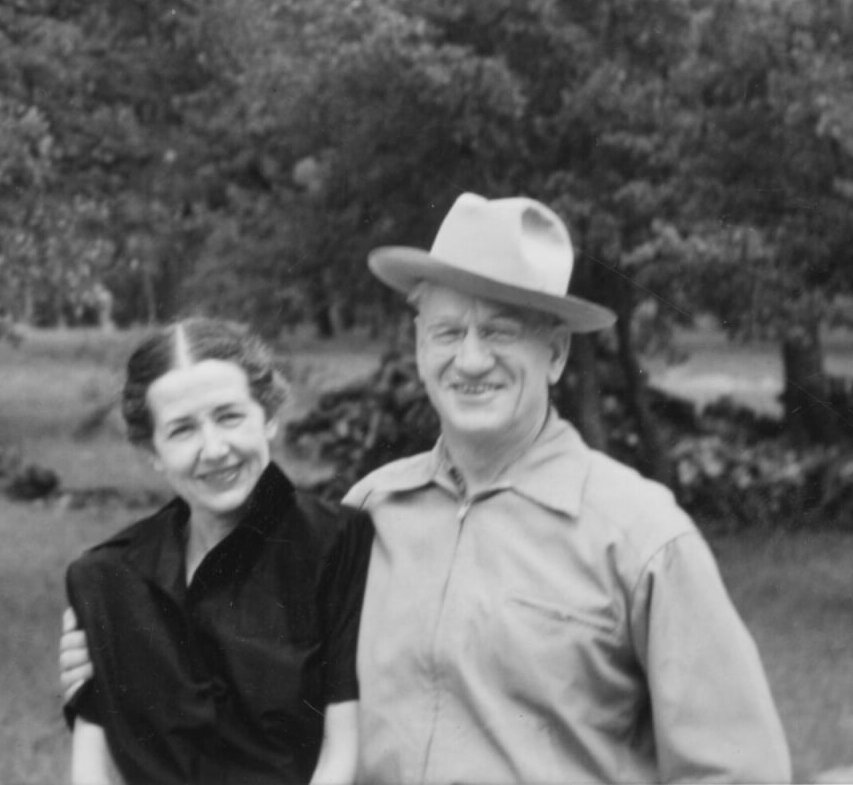
Mary Holdsworth Butt and her husband purchase the Wolfe Ranch on the Frio river.
First Laity Lodge retreat convenes.
Mrs. Gertrude Behanna is the first woman to be billed as a Laity Lodge retreat leader.
Earliest Laity Lodge Women’s Retreat, featuring Edith Schaeffer and Marion Barnes.
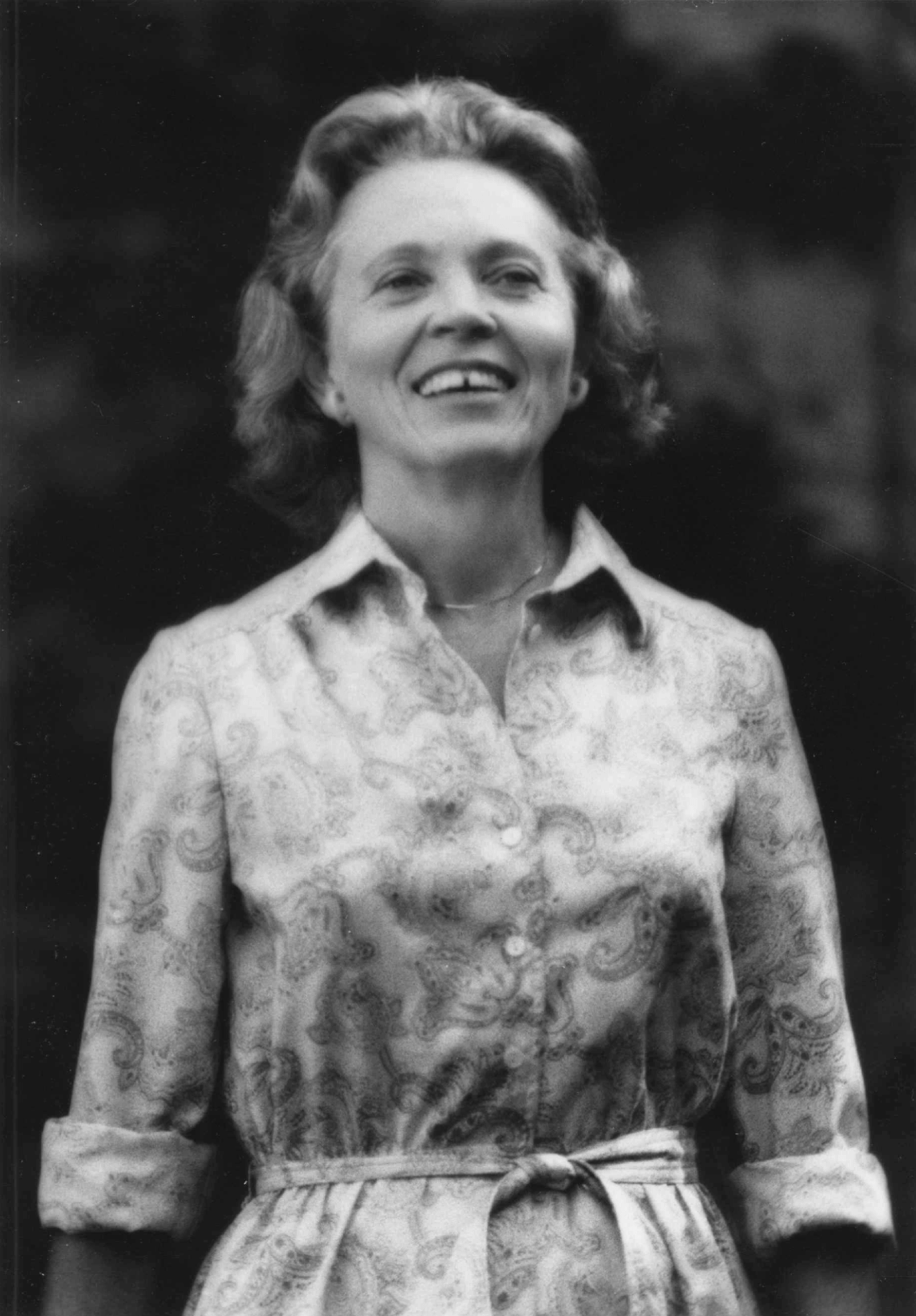
Elisabeth Elliot speaks at the Women’s Retreat, in her first appearance at the Lodge.
Jeannette Clift George, actress and speaker makes her first Lodge visit to speak at “A Celebration of the Creative Arts” retreat.
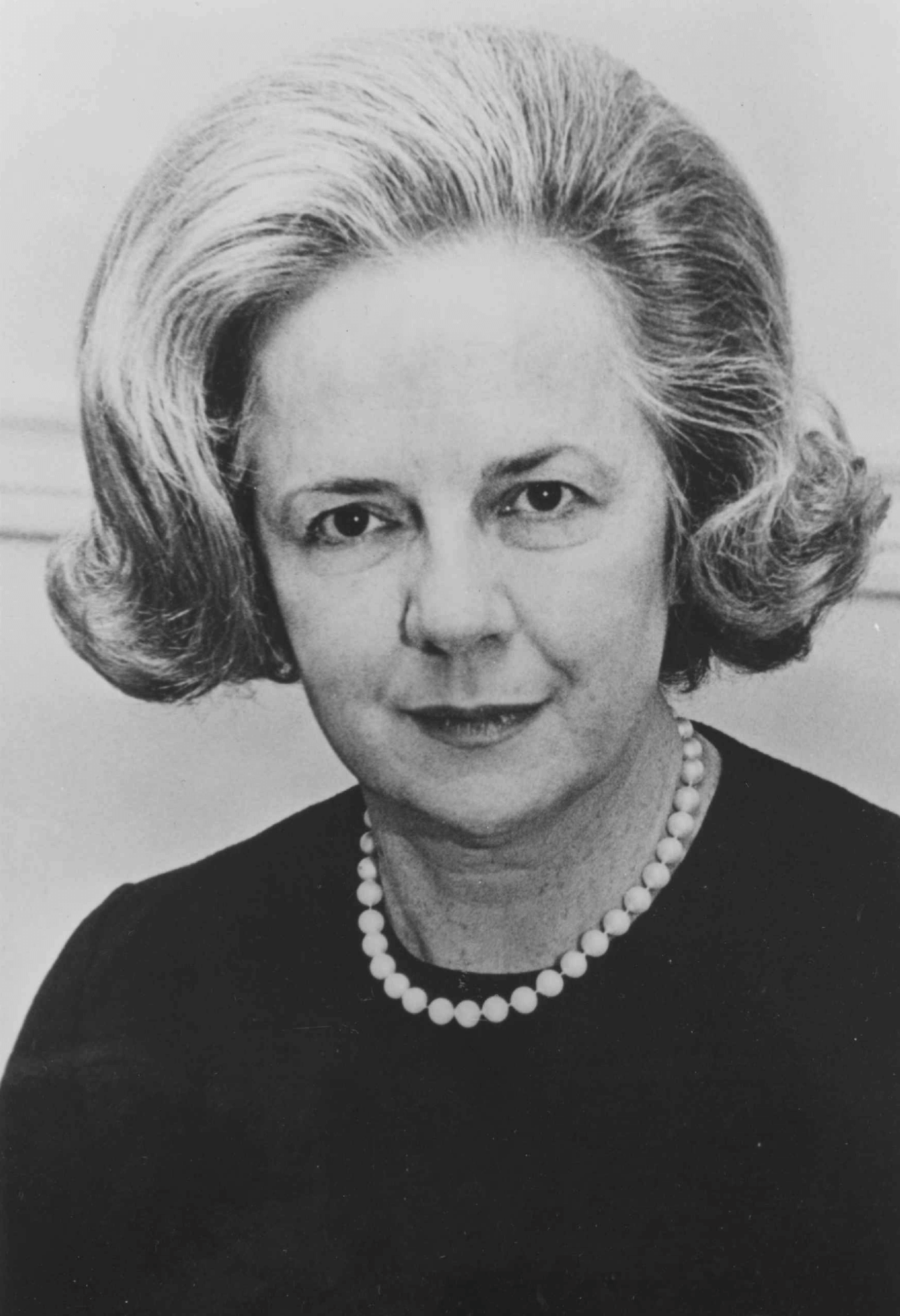
Abigail McCarthy (pictured) speaks on opening night of the North American Congress of the Laity in Los Angeles. Natalia Solzhenitsyn speaks at a Laity Lodge Renewal event in Hanover, New Hampshire.
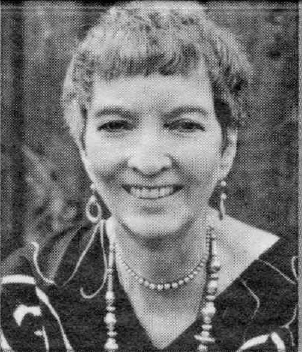
Madeleine L’Engle visits the Lodge for the first time, speaking at Creativity Week.
Luci Shaw begins leading workshops at the Lodge.